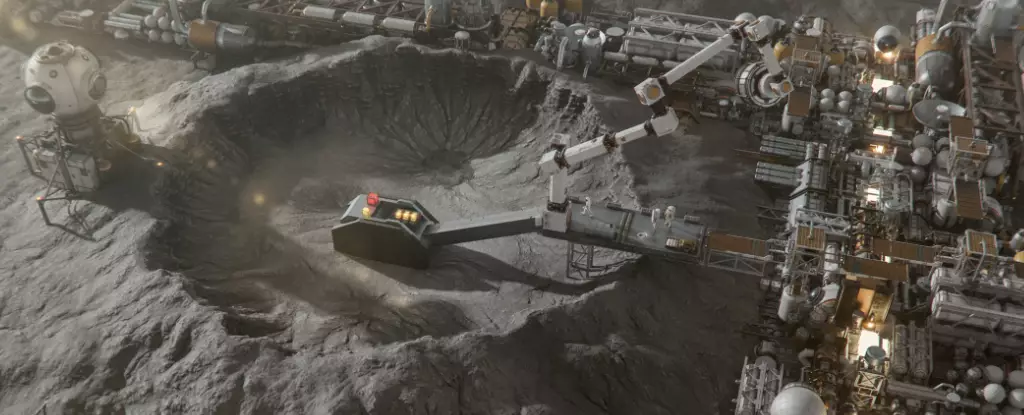As we approach the end of this decade, the Moon is poised to become a new frontier not just for exploration but for commercial exploitation. Nations, led by agencies like NASA and emerging competitors such as China, plan to establish mining operations on the lunar surface. This is more than just a race to put boots on Moon; it’s a precursor to a space economy that many believe could redefine our relationship with celestial bodies. As exciting as the potential for mining lunar resources is, it also raises important questions about ethics, legality, and the long-term implications for humanity’s presence in space.
The Economic Incentives for Lunar Mining
While the prospect of lunar mining could yield vast wealth, the economic drivers are far more complex than merely extracting ores and minerals. The Moon is rich in resources such as helium-3, water ice, and rare Earth metals—assets that have significant implications for energy production and technology on Earth. Presently, logistical challenges mean that delivering these essential materials from Earth to space is prohibitively expensive; for instance, the cost of transporting a liter of water to the Moon exceeds the price of gold. By extracting lunar resources, space missions could become more sustainable, not to mention economically viable. Imagine refueling spacecraft on the Moon before embarking on more ambitious journeys to Mars or beyond—this could forever change space travel as we know it.
However, with great opportunity comes substantial responsibility. The Moon’s delicate environment is not immune to the disturbances that mining activities could cause. The phenomenon of lunar dust—particles kicked up during extraction processes—presents a unique challenge. Without an atmosphere to mitigate its movement, this dust can travel across vast distances, settling in ways that could alter the Moon’s physical appearance over time. This environmental degradation raises vital questions about sustainability. How can we manage lunar resources without compromising the very essence of what makes the Moon a target for exploration in the first place? Future operations will need to incorporate efficient dust management strategies to minimize disruption.
When it comes to the legalities surrounding lunar mining, the situation is murky. The Outer Space Treaty of 1967 designates space, including the Moon, as the “province of all mankind,” rejecting any claims of sovereignty. However, the Moon Treaty of 1979 declared its resources as a “common heritage,” which many interpret as a restriction on commercial mining. Conversely, the Artemis Accords of 2020 allowed for resource extraction but reiterated the prohibition against claiming ownership. This conflicting legal framework could lead to significant disputes in the future as various countries and private enterprises interpret their rights in different ways. A poorly defined legal landscape could spark international tensions that mirror the colonial disputes of centuries past.
The Human Factor: Worker Rights and Safety
Amid the technological and legal discussions, it’s easy to overlook a crucial aspect: the welfare of the individuals working in these extreme environments. Mining in low-gravity conditions presents unique health challenges, such as exposure to cosmic radiation and psychological stress. The implications of working long hours in potentially hazardous conditions, exacerbated by isolation, could set a precedent for exploitation. This raises a fundamental ethical dilemma: how do we ensure that space mining doesn’t become a dystopian nightmare reminiscent of the dark chapters in Earth’s industrial past? It is imperative to establish comprehensive worker protections and regulatory frameworks to safeguard the rights and well-being of those who might labor on the lunar surface.
Shaping A Responsible Future
As we stand on the brink of a new era of lunar exploration, the stakes are incredibly high. The Moon holds vast potential for advancing human knowledge, habitation, and technological capability. Yet, history has shown that unchecked ambition can lead to exploitation that marginalizes human rights and environmental ethics. To strike a balance, stakeholders—including nations, private companies, and international organizations—must prioritize the formation of robust regulations that emphasize safety, fairness, and a commitment to the broader human good. Only then can we hope to navigate the complexities of lunar mining and ensure that the Moon retains its place as a source of inspiration and collective heritage for future generations.


Leave a Reply